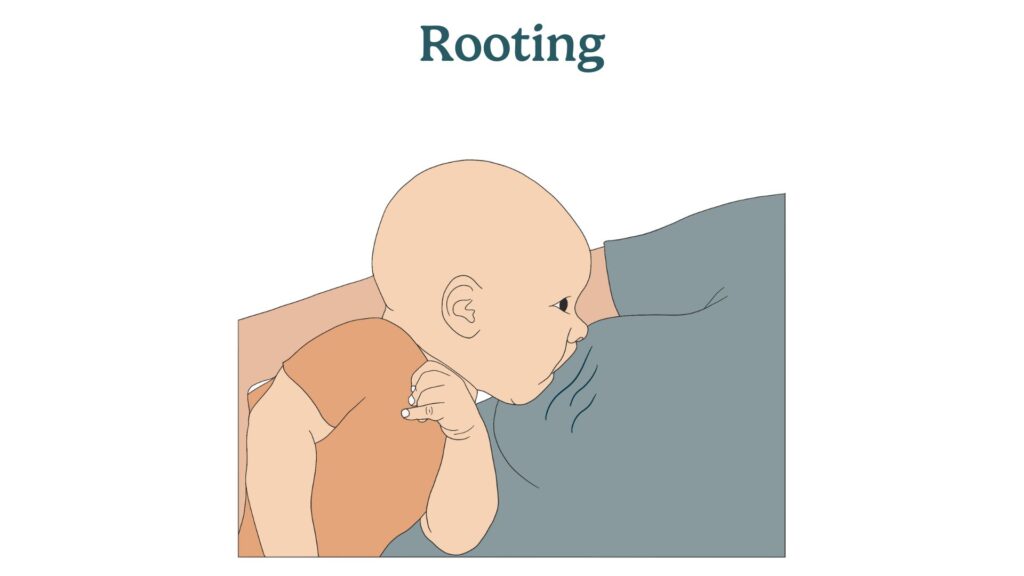rooting

Rooting
Rooting is a natural reflex that newborns have, which helps them find the breast and begin feeding. When a baby is rooting, they will turn their head towards anything that touches their cheek or mouth, open their mouth, and make sucking motions. This reflex is important for successful breastfeeding as it helps the baby latch onto the breast and start feeding. We expect the rooting reflex to fade around 4-6 months of age.
What to watch out for
It’s important to recognize the rooting reflex to ensure your baby is ready to feed. Here are some signs to look out for and tips for managing feeding:
- Head turning: Your baby will turn their head toward your breast or anything that touches their cheek.
- Mouth opening: Your baby will open their mouth wide, ready to latch onto the breast.
- Sucking motions: Your baby will make sucking movements with their mouth, indicating they are ready to feed.
- Restlessness: Rooting often occurs when your baby is hungry, so they might become more active or fussy.
To make the most of the rooting reflex, try these tips:
- Respond quickly: When you see your baby rooting, bring them to the breast to help them latch on before they become too upset. Learn more about hunger cues.
- Skin-to-skin contact: Holding your baby skin-to-skin can help stimulate the rooting reflex and encourage feeding. Learn more about skin-to-skin contact.
- Proper positioning: Ensure you and your baby are comfortable and in a good position for latching. Support their head and neck to help them latch effectively. Explore different breastfeeding positions.
Physical limitations or health circumstances
Certain conditions can affect your baby’s ability to root effectively:
- Premature birth: Premature babies may have a weaker rooting reflex and may need extra help with latching and feeding.
- Tongue tie: A condition where the tissue under the tongue is too tight, restricting movement and making it harder for your baby to latch. Learn more about tongue tie.
- Medical conditions: Some medical and neurological conditions or medications can affect your baby’s reflexes and feeding behaviors.
Other terms
Understanding related terms can help you better manage rooting and breastfeeding challenges:
- Latch: The way your baby attaches to your breast. A good latch helps ensure effective feeding. Learn about the signs of a good latch.
- Sucking reflex: Another important reflex that allows your baby to draw milk from your breast.
- Skin-to-skin contact: Holding your baby close to your skin to encourage feeding behaviors and bonding. Learn more about skin-to-skin contact.
- Colostrum: The first milk your body produces, rich in nutrients and antibodies.
- Lactation consultant: A professional who can provide support and guidance on breastfeeding issues.


